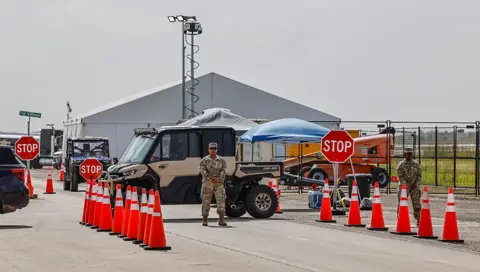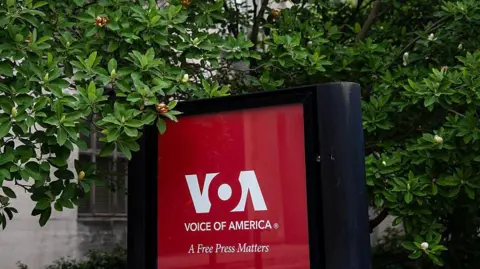In a significant policy reversal, the Trump administration announced on July 7, 2025, that it would terminate Temporary Protected Status (TPS) for migrants from Honduras and Nicaragua. This decision by the Department of Homeland Security (DHS), which allows migrants to remain in the United States free from deportation while their home countries recover from disasters or conflict, is set to take effect in approximately two months. This policy change comes after President Trump returned to office and is part of a broader initiative to reshape immigration policy.
According to DHS, approximately 72,000 Hondurans and 4,000 Nicaraguans currently benefit from TPS. However, this number does not account for those who have transitioned to permanent residency, with about 21,000 Hondurans and 1,100 Nicaraguans holding green cards. The TPS designation for Hondurans and Nicaraguans was first implemented in 1999 following the catastrophic Hurricane Mitch in 1998.
Kristi Noem, the Secretary of Homeland Security, defended the administration's decision, stating, "Temporary Protected Status was designed to be just that — temporary." She highlighted the progress Honduras has made since the hurricane, referring to the country as a viable tourism and investment destination now that sufficient recovery efforts have allegedly been established.
Historically, the Trump administration has targeted TPS for various countries, including Haiti, Venezuela, and Afghanistan. Immigrant advocates have expressed deep concern regarding the ramifications of this termination, predicting that it will lead to turmoil for the affected communities that have relied on TPS for years. Robyn Barnard of Human Rights First called the decision an example of recklessness, noting that it could destabilize families and communities dependent on these migrant workers.
Additionally, legal challenges against the administration's attempts to end TPS are ongoing. Federal courts have previously blocked similar efforts, including recent rulings to maintain protections for Haitians and Venezuelans, with the latter's case currently under review by the Supreme Court.
As the developments unfold, the implications of ending TPS for Hondurans and Nicaraguans will likely reverberate throughout U.S. communities, shaping both the immigrant experience and the political landscape ahead of upcoming elections.
According to DHS, approximately 72,000 Hondurans and 4,000 Nicaraguans currently benefit from TPS. However, this number does not account for those who have transitioned to permanent residency, with about 21,000 Hondurans and 1,100 Nicaraguans holding green cards. The TPS designation for Hondurans and Nicaraguans was first implemented in 1999 following the catastrophic Hurricane Mitch in 1998.
Kristi Noem, the Secretary of Homeland Security, defended the administration's decision, stating, "Temporary Protected Status was designed to be just that — temporary." She highlighted the progress Honduras has made since the hurricane, referring to the country as a viable tourism and investment destination now that sufficient recovery efforts have allegedly been established.
Historically, the Trump administration has targeted TPS for various countries, including Haiti, Venezuela, and Afghanistan. Immigrant advocates have expressed deep concern regarding the ramifications of this termination, predicting that it will lead to turmoil for the affected communities that have relied on TPS for years. Robyn Barnard of Human Rights First called the decision an example of recklessness, noting that it could destabilize families and communities dependent on these migrant workers.
Additionally, legal challenges against the administration's attempts to end TPS are ongoing. Federal courts have previously blocked similar efforts, including recent rulings to maintain protections for Haitians and Venezuelans, with the latter's case currently under review by the Supreme Court.
As the developments unfold, the implications of ending TPS for Hondurans and Nicaraguans will likely reverberate throughout U.S. communities, shaping both the immigrant experience and the political landscape ahead of upcoming elections.




















